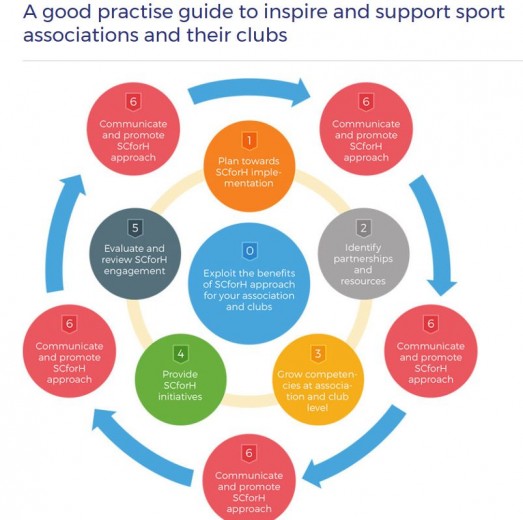New online resource helps sports clubs promote the health benefits of their activities
22/05/2017

Competition is no longer the main priority for the 21st century sports club. Demonstrating the health benefits of their activities is an increasingly valuable way to attract and retain members. The Finnish Olympic Committee’s Erasmus+ supported Sports Club for Health project, in which ISCA is a partner, launched its new interactive online resource for sports clubs at its closing seminar at the European Parliament on 25 April in Brussels.
The resource, featured on the project’s website www.scforh.info offers evidence-based guidelines for sports clubs to help them accentuate the health-enhancing potential of their activities.
Eerika Laalo-Häikiö from the Finnish Swimming Association says the guidelines helped them focus their strategy on promoting swimming as a sport that is good for your health.
“We were going to update our strategy towards 2020 and at the same time the demand for health-enhancing physical activity had gone up tremendously, and also the Ministry of Education had started to lift up the role of sport organisations in health-enhancing physical activity,” she says.
“With the Sports Club for Health project we included in our strategy some of the main issues, and one of our core promises is to provide health and wellbeing in our swimming clubs. We started from first increasing awareness... As swimming is very good for your health, our aim is that all of the clubs know what swimming does for your health and how we are already providing health-enhancing activities.”
The Sports Club for Health guidelines for integrating a health perspective in clubs and the electronic resource that guides sport associations in taking a more strategic approach along these lines, is underpinned by many good practice examples across seven areas from planning to implementation and promotion (shown in the diagram below).
Around 50 participants from the European Parliament, the European Commission’s Sport Unit, international sport federations and other stakeholders attended the project’s closing conference in Brussels. The enthusiastic turnout highlighted the widespread recognition of the sport sector as an important stakeholder in promoting health-enhancing physical activities. Several of the sports-political statements made at the event also emphasised this view.
To find out more about the Sports Club for Health project and guidelines, please visit www.scforh.info
By Herbert Hartmann and Rachel Payne, ISCA


Posted on 22/05/2017 by

